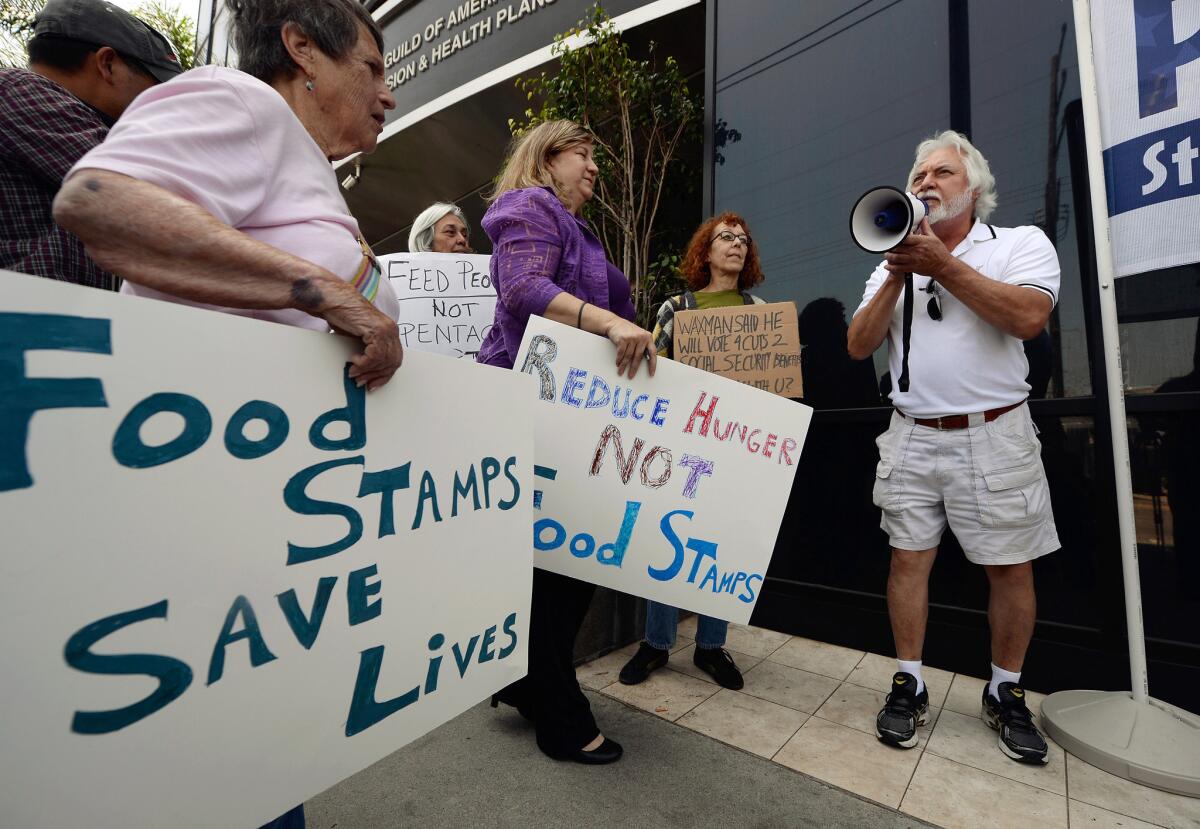Callous cuts to the poor

- Share via
“The one who is unwilling to work shall not eat,” Rep. Stephen Fincher (R-Tenn.) said in quoting the Bible last month of the 48 million hungry Americans, mostly working families and senior citizens, who require federal help to put food on the table. That misguided principle stands at the center of a House farm bill that threatens $20.5 billion in cuts over a decade to food stamps, officially known as the Supplemental Nutrition Assistance Program. Pursuing the sacred cause of deficit reduction, Congress would sooner shrink aid to struggling families than substantially reform farm subsidies, of which Fincher, who owns a family cotton farm, is one of the largest recipients in Tennessee history.
It’s dismaying that 1 in 7 Americans needs help getting enough food to eat. The number of recipients has soared since the recession began, and the fact that rates have stayed high reflects the troubling reality that many of the jobs regained so far during the recovery are low-wage.
But the solution is not to push 1.8 million low-income people off the food stamp rolls, as this bill is poised to do. Contrary to Republican charges that growing food stamp enrollment signals a decline into dependency, the program is functioning as it was designed to, responding to economic distress by making sure families have food. That’s humane — the program kept 2.1 million children out of poverty in 2011 by providing food assistance to low-income families — and it’s also fiscally effective: People who aren’t hungry are more productive.
VIDEO: Farmers markets get money to take food stamps
The House bill promises to undercut the food stamp program precisely where it’s most promising. The bill would penalize recipients who have built small savings or who own a modest car, assets known to help people find employment and regain self-sufficiency.
Some 210,000 low-income children also stand to lose free school meals, negating a sensible investment in current learning and future productivity if there ever was one. Benefit cuts for an additional 1.7 million people included in the bill would disproportionately hurt low-income seniors, people with disabilities and working-poor families with children. Over 80% of households that receive benefits live below the poverty line.
Some in Congress complain that an expanding food stamp system is ripe for abuse. But in fact, the program has a low and steadily dropping fraud rate, and the vision of impoverished people living lavishly off $1.48 per meal is a mean-spirited fiction. Americans should not starve. This program deserves to continue, as a matter of moral responsibility and fiscal common sense.
More to Read
A cure for the common opinion
Get thought-provoking perspectives with our weekly newsletter.
You may occasionally receive promotional content from the Los Angeles Times.










